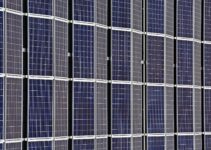Solar panels have become an increasingly popular choice for homeowners looking to reduce their electric bills while embracing clean energy. But how exactly do solar panels work with your electric bill?
In this guide, we will delve into the basics of solar panel technology, explore how solar panels generate electricity, discuss the role of net metering in reducing your electric bill, highlight the financial benefits of solar energy, examine factors that affect solar panel efficiency, and provide tips to maximize your savings with solar panels.
Understanding the basics of solar panel technology
Solar panels are composed of photovoltaic (PV) cells that convert sunlight into direct current (DC) electricity. These cells are typically made of silicon, a semiconductor material that releases electrons when exposed to sunlight. The electrons then flow through an electrical circuit, creating an electric current.
It’s important to note that solar panels generate electricity only when sunlight is available. This means that solar panels produce less electricity during cloudy days or at night when there is no sunlight.
How solar panels generate electricity
When sunlight hits a solar panel, it excites the electrons in the PV cells, causing them to flow and generate an electric current. This direct current (DC) electricity is then converted into alternating current (AC) electricity using an inverter. AC electricity is the type of electricity used in homes and businesses.
Once the AC electricity is generated, it can either be used immediately to power your home’s electrical appliances or be sent back to the grid if it exceeds your current energy consumption.
It’s important to note that the amount of electricity generated by solar panels depends on various factors, such as the size and efficiency of the panels, the amount of sunlight received, and the orientation and tilt of the panels.
The role of net metering in reducing your electric bill
Net metering is a billing arrangement that allows homeowners with solar panels to receive credit for the excess electricity they generate and send back to the grid. With net metering, your electric meter can “spin backward” when your solar panels produce more electricity than you consume. This effectively reduces your electric bill by offsetting the cost of the electricity you draw from the grid during times when your solar panels are not producing enough electricity.
Net metering policies vary by location, so it’s important to check with your local utility company to understand the specific terms and conditions of net metering in your area. Some utility companies may offer net metering programs that allow you to carry forward your excess credits to future billing periods or receive payment for the surplus electricity you generate.
Exploring the financial benefits of solar energy
Investing in solar panels can provide significant financial benefits in the long run. While the upfront cost of installing solar panels may seem high, the savings on your electric bill and potential incentives can make it a worthwhile investment.
Here are some financial benefits of solar energy:
- Savings on your electric bill: By generating your own electricity, you can reduce or even eliminate your monthly electric bill.
- Return on investment: Solar panels typically have a lifespan of 25 to 30 years, meaning you can enjoy years of savings on your electric bill.
- Government incentives: Many governments offer financial incentives, such as tax credits or rebates, to homeowners who install solar panels.
- Increased property value: Solar panels can increase the value of your home, making it more attractive to potential buyers.
Factors that affect solar panel efficiency
Several factors can affect the efficiency of solar panels and their ability to generate electricity:
- Amount of sunlight: Solar panels generate more electricity when exposed to direct sunlight for longer periods.
- Panel orientation and tilt: The angle and direction in which solar panels are installed can affect their ability to capture sunlight efficiently.
- Shading: Shadows from nearby trees, buildings, or obstructions can reduce the amount of sunlight reaching the solar panels.
- Temperature: High temperatures can reduce the efficiency of solar panels, although modern panels are designed to handle temperature variations.
- Quality of panels: The quality and efficiency of the solar panels themselves can vary, so it’s important to choose reliable and reputable brands.
Tips to maximize your savings with solar panels
To maximize your savings with solar panels, consider the following tips:
- Optimize panel placement: Install solar panels in a location that receives maximum sunlight throughout the day and avoid shade as much as possible.
- Maintain panel cleanliness: Regularly clean your solar panels to remove dirt, dust, or debris that can reduce their efficiency.
- Monitor energy consumption: Keep track of your energy consumption to better understand how your solar panels are offsetting your electric bill.
- Consider energy-efficient appliances: Investing in energy-efficient appliances can further reduce your overall energy consumption.
Frequently Asked Questions about How Do Solar Panels Work with Your Electric Bill?
Q: How do solar panels reduce my electric bill?
A: Solar panels generate electricity from sunlight, which can offset the electricity you draw from the grid. This reduces your overall electric bill.
Q: Can solar panels eliminate my electric bill entirely?
A: In some cases, solar panels can generate enough electricity to eliminate your electric bill entirely. However, factors such as your energy consumption and the size of your solar panel system will determine the extent of bill reduction.
Q: What happens to the excess electricity generated by my solar panels?
A: Excess electricity generated by your solar panels can be sent back to the grid, where it can be used by other customers. In some cases, you may receive credit or payment for the surplus electricity.
Q: Do I still receive electricity during nighttime or cloudy days?
A: Solar panels require sunlight to generate electricity. During nighttime or cloudy days, when sunlight is limited, your electricity will come from the grid as usual.
Expert Advice
When it comes to understanding how solar panels work with your electric bill, it’s essential to consult with experts in the field. They can assess your energy needs, determine the optimal size and placement of solar panels, and guide you through the entire installation process. Reach out to reputable solar energy companies or local energy consultants to get personalized advice tailored to your specific situation.
In conclusion, solar panels can significantly impact your electric bill by generating clean and renewable electricity. By understanding the basics of solar panel technology, how solar panels generate electricity, the role of net metering, the financial benefits, factors affecting efficiency, and tips to maximize savings, you can make an informed decision about harnessing the power of the sun for your energy needs.






